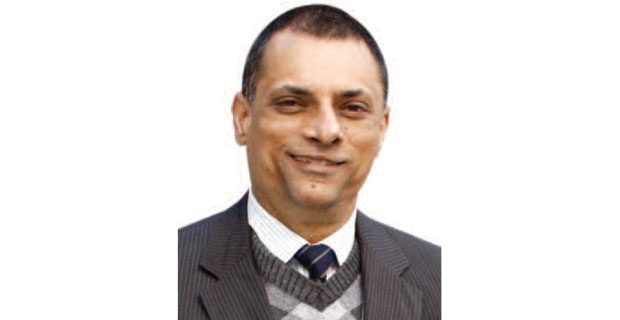Editor’s Desk
On November 6, the U.S. witnessed an extraordinary political turnaround as Donald J. Trump made a triumphant return, overcoming legal hurdles, a volatile political climate, and even assassination attempts. His victory in the 2024 presidential election is not only seen as a personal vindication but also as a momentous event for the global Indian diaspora, who have often viewed Trump as a reliable ally of India.
This comeback underscores the influence of a leader who significantly shaped U.S.-India relations—something many in the Indian-American community hold in high esteem. At 78, Mr Trump will be the oldest U.S. president to take office and joins Grover Cleveland as only the second president in history to return to the White House after a previous electoral defeat. For the Indian diaspora, Mr Trump’s return signals more than just policy continuity; it signifies the rekindling of a unique partnership with Indian Prime Minister Narendra Modi—a bond that resonates deeply with Indian-American communities across the nation.
Mr Trump’s victory is being celebrated by many Indian-Americans who see him as a champion of India’s interests on the world stage. During his previous administration, India’s importance in U.S. foreign policy was elevated, aligning with the aspirations of a politically active and increasingly influential diaspora.
Perhaps the most impactful aspect of Trump’s return for the Indian diaspora is the continuation of his warm relationship with Prime Minister Modi. Their camaraderie, built on mutual respect and shared strategic interests, has struck a chord within the community. Mr Modi’s congratulatory message to Mr Trump, amassing over 7.5 million views, reinforced the depth of their relationship. Mr Modi’s tweet, celebrating Mr Trump’s “historic election victory,” hinted at a renewed chapter of collaboration, promising stronger U.S.-India relations.
For the Indian-American community, this partnership suggests an ongoing commitment to initiatives that promote peace, stability, and prosperity. It symbolizes a continuation of policies that prioritize security and economic growth, both in the U.S. and on a global scale.
The Indian diaspora, particularly influential in battleground states such as California, New Jersey, Texas, and Illinois, has become a key voting bloc. Trump’s engagement with this community has only strengthened since his first term. Many Indian-Americans appreciate his focus on law and order, economic expansion, and firm immigration policies, which align with their priorities. The acknowledgment most valued by the Indian diaspora comes from within their own communities, where Trump is seen as a leader who respects their values and priorities.
His tough stance on terrorism, notably in relation to Pakistan, resonated with Indian-Americans concerned about India’s security. This connection is a testament to Trump’s broader appeal, which goes beyond traditional political boundaries and taps into core issues for many in the diaspora.
The defeat of Kamala Harris, who represented the Democratic Party after President Biden’s withdrawal, was a complex moment for the Indian-American community. While Harris’s candidacy symbolized progress for South Asians in U.S. politics, her campaign struggled amidst broader Democratic challenges. Issues like abortion rights and race relations, central to her platform, did not resonate with some in the Indian diaspora who prioritized economic stability and national security.
Mr Trump’s return is viewed by many as a rejection of the Democratic focus on identity politics, which some in the diaspora see as divisive. Instead, his rhetoric spoke directly to broader concerns that matter deeply to Indian-Americans, including job growth and strong international alliances.
With Mr Trump poised for a second term, hopes are high for deepened ties between the U.S. and India. Opportunities for enhanced trade, defense collaboration, and strategic alignment in the Indo-Pacific region—where both nations face shared challenges—seem promising. On the campaign trail, Mr Trump frequently praised India’s rising global influence and expressed admiration for Mr Modi, reinforcing expectations of continued cooperation.
For many Indian-Americans, this election represents more than just a political shift; it is a testament to their growing role in shaping the American political narrative. As one social media user expressed, “Two nationalist friends now heading the two greatest democracies.” With Mr Trump returning to the White House and Mr Modi leading India, the Indian diaspora feels more connected than ever to the political powerhouses steering the world stage.
Sayantan Chakravarty
sayantanc@gmail.com











Comments.